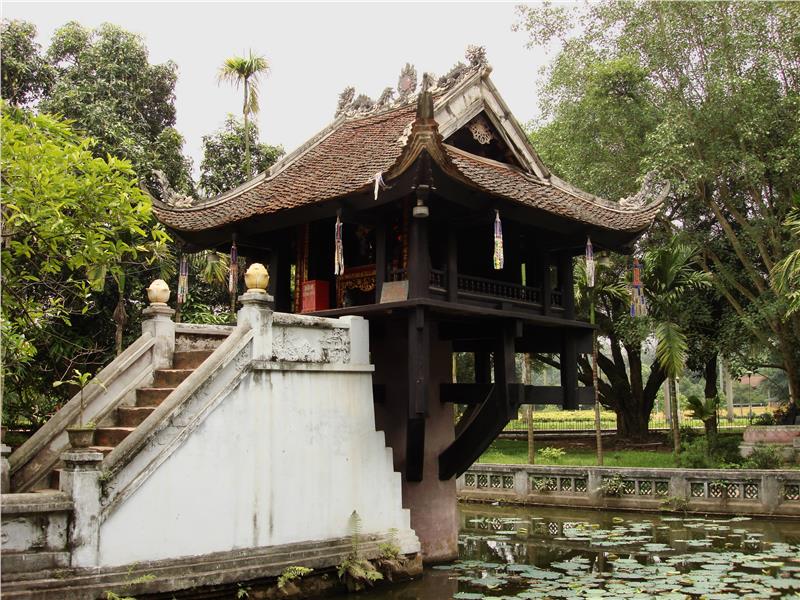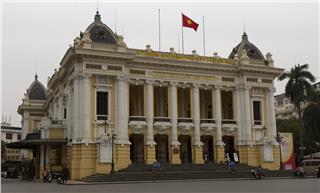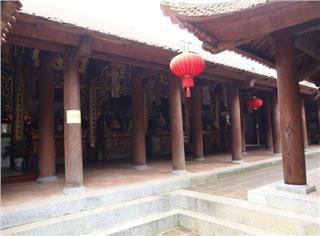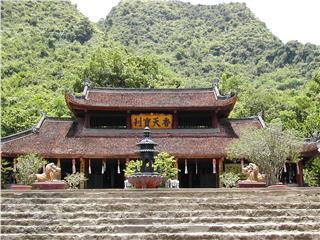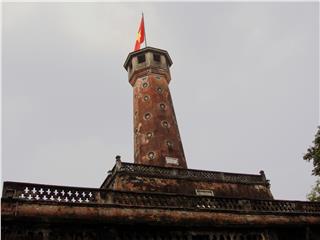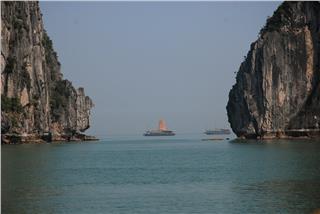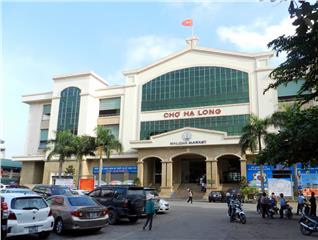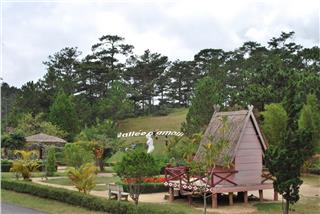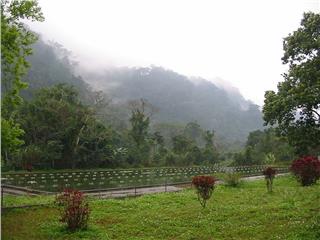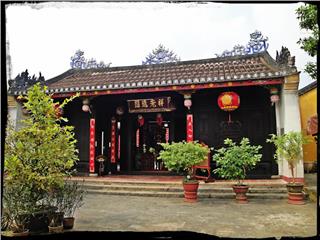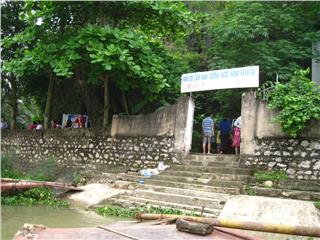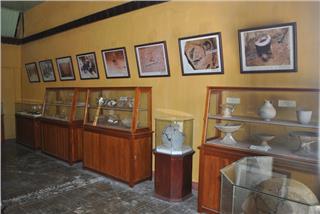Situated in Chua Mot Cot Street, Ba Dinh District - Hanoi nearby Ho Chi Minh Museum, One Pillar Pagoda together with "Khue Van Cac" is is one of the long-standing cultural historical relics, a symbol of Hanoi City thousand year civilization.
One Pillar Pagoda, also known as the Dien Huu Pagoda or Lien Hoa Dai owns unique architectural structure with a square structure lying on a stone pillar. It is distinctive architecture that gives the pagoda become one of the fascinating tourist attractions in Hanoi. Floating above the lake consists of a system of wooden slats forming the solid structure firmly supporting the pagoda, which looks like a lotus flower raising straight up from the lake. Dien Huu Pagoda started its construction in October (lunar calendar), 1049 under King Ly Thai Tong. In 1106, King Ly Nhan Tong renovated and expanded the pagoda to become a large architectural complex with Linh Chieu Lake added and a gilded lotus throne atop. Inside the lotus throne is purple shrine with sacred bird imagery in the roof. There is a gilded statue of Buddha Avalokiteshvara inside.
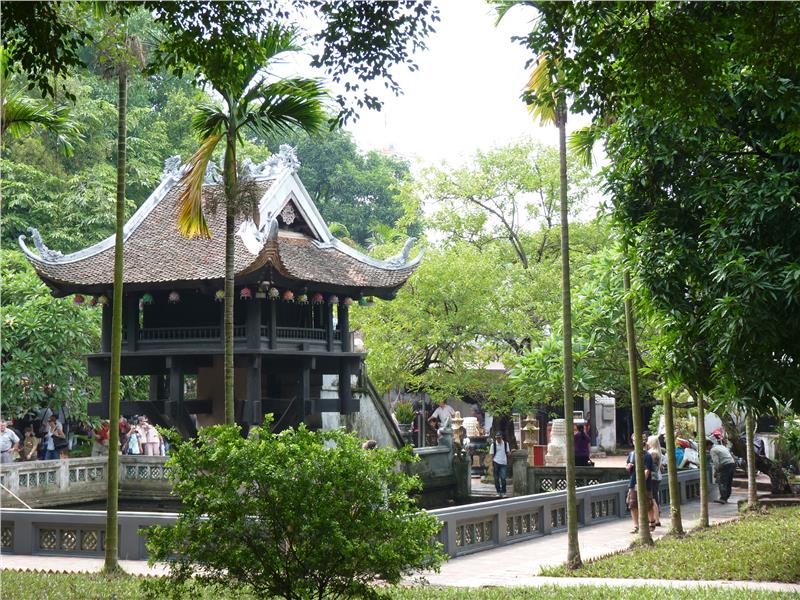
Spreading years, One Pillar Pagoda had been renovated, restored several times over Dynasties of Tran, Late Le and Nguyen. One Pillar Pagoda is now only a part of the architectural ensemble of ancient Dien Huu Pagoda to remember where once used to be a unique architectural works here. The pagoda retains a wooden square structure with each side of 3 meters long, four curved roofs covered four dragon head-shape. The pillar consists of two interconnected blocks with 1.2 m in diameter and 4m high (not including the part submerged in land). Entrance to the pagoda is a small staircase made of brick. Above the pillar consists of a system of wooden slats forming the solid structure firmly supporting the pagoda, which looks like a lotus flower raising straight up from the lake. This architecture is credibly unique characteristics in One Pillar Pagoda.
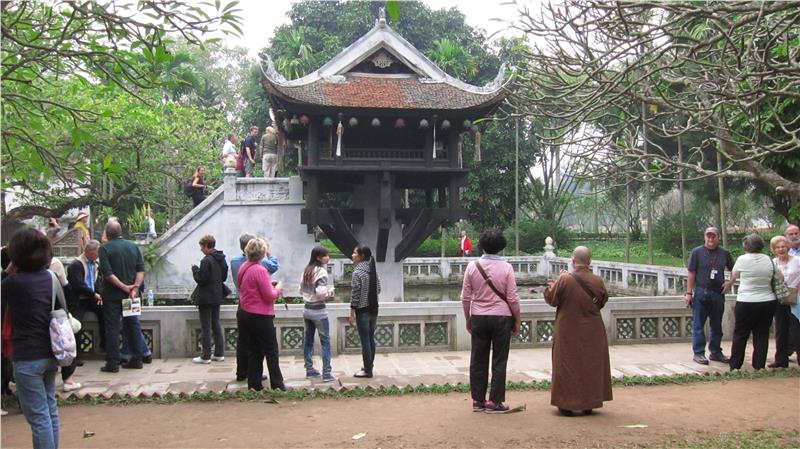
Inside the pagoda, the statue of Guan Yin Buddha sits on a lacquer dipped gold trim red wooden lotus in the highest position. Above Buddha statue is horizontal lacquered board recalling the dream of King Ly leading to the construction of the pagoda. From the yard to the pagoda floor, tourists will walk through 13 sidesteps, two sides of brick-tiled wall with stone stele introducing the history of the pagoda. One Pillar Pagoda was built in the middle of lotus pond with 20m long on each side and a low wall surrounding. Though the scale of the pagoda is not large, it brings a unique beauty. Erected just by a pillar, the pagoda can still firmly stand challenging over time. Tourists have an opportunity to participate in Hanoi travel to the pagoda are certainly amazed at its unique architecture.
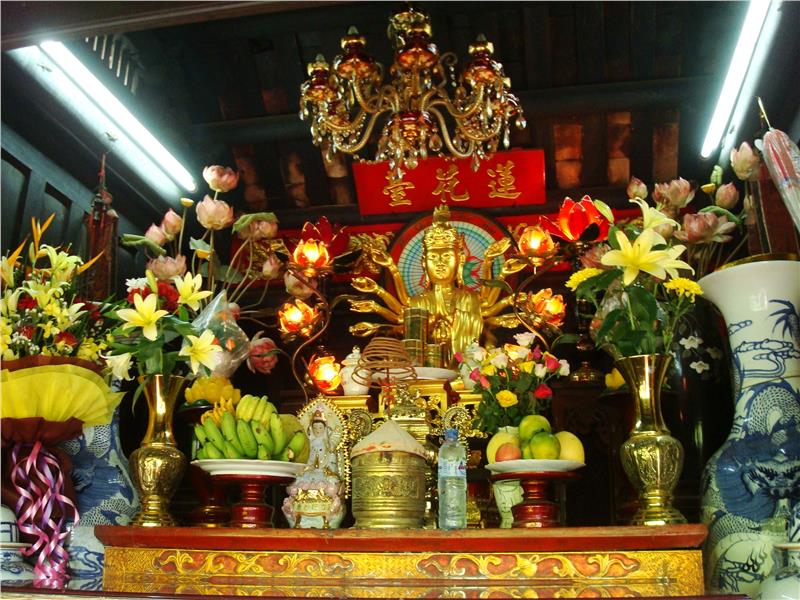
As one of historical sites in Hanoi and impressive Hanoi attractions, the pagoda today though is not shaped like lotus petals on the ancient stone columns, the image of a pagoda rising among the waters still evokes the shape of a lotus flower - the charming flower symbolizing the quintessential noble beauty - located right in the heart of the lake. Additionally, it is also a symbol of wisdom, of longevity, and of salvation through fully intellectual awareness. Unlike any Buddhist stupas, One Pillar Pagoda deeply bears humanist philosophy with the square-shaped outer representing the yin, and the circle-shaped column representing the yang. Its beauty not only seems quaint majesty, but also hides elegant and gentle demeanor of the Buddha realm.
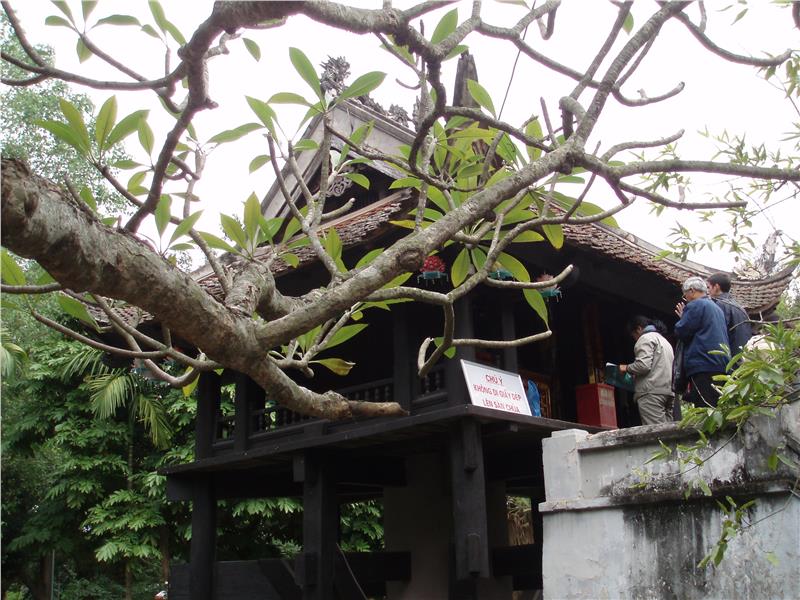
Spreading over thousands of years with numerous ups and downs of history, One Pillar Pagoda always retains the spirit of ancient Thang Long. The small fragile pagoda stills keeps enormous cultural and historical values. Its image is always majesty in the spiritual of the nation and is the symbolic image of the capital, firmly standing in endless time line. One Pillar Pagoda deserves to be a symbol of Hanoi, contributing to promote Hanoi tourism to international friends.
